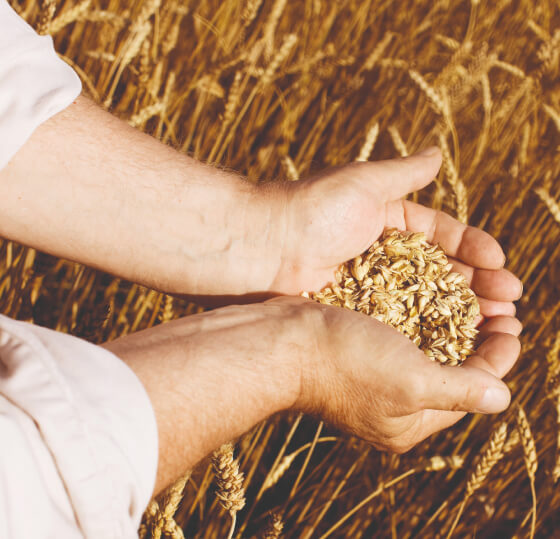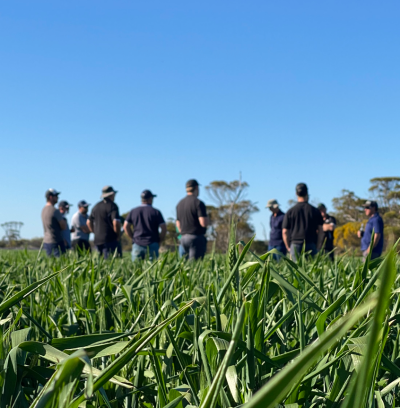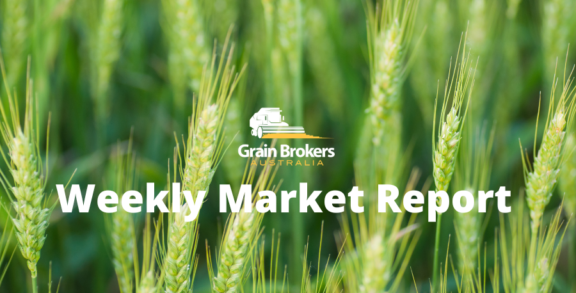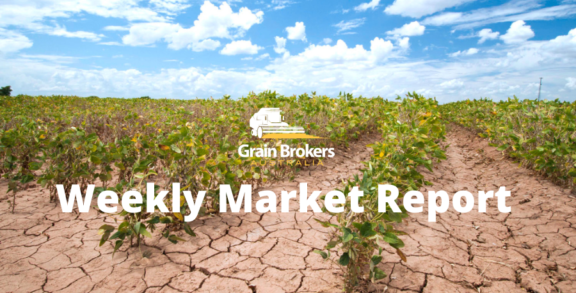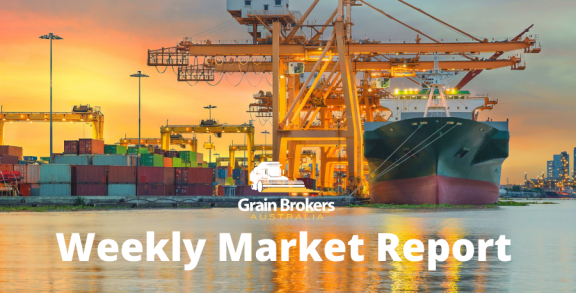
Shipments of Russian grain to export customers across the globe reached a record in the 2022/23 marketing year (July to June) despite the mounting Western sanctions, and that looks set to continue in the new marketing year with Russia sitting on massive old crop supplies and another big harvest on the way.
Russian Minister of Agriculture Dmitry Patrushev announced on Friday that last season’s grain exports totalled 60 million metric tonne, leading to a substantial increase in export revenues. Furthermore, the minister added that Russia plans to export 55MMT of grain in the current marketing year and emphasised that export capacity could be increased if required.
According to the minister, most of the grain went to “friendly countries”, with Russia pivoting its agricultural exports to customers that have not supported the Western sanctions against Moscow. These nations now receive around 87 per cent of total grain exports, with destinations including China, Turkiye, Egypt, Bangladesh, Algeria, and Pakistan.
IKAR, the Russian Institute for Agricultural Market Studies, put 2022/23 wheat exports at a record 48MMT, which equates to more than 22.3 per cent of global wheat trade based on the United States Department of Agriculture’s worldwide export estimate of 215.56MMT.
Black Sea consultancy SovEcon also raised its Russian wheat export forecast, adding a further 1.5MMT last week to total 47.2MMT. Furthermore, SovEcon raised its estimate for total Russian wheat exports last month by 300,000 metric tonne to a June record of 3.5MMT. This compares to 1.0MMT in 2022 and the June average of 1.4MMT.
The gong for the biggest shipper of Russian wheat in 2022/23 went to Grain Gates LLC, a new kid on the block with reported links to Demetra, the second biggest exporter of Russian wheat in 2021/22, and the sanctioned state-owned lender VTB Bank PJSC. While both have distanced themselves from the new trading entity, registered in June 2022, it is run by Ilya Aliev, the former head of trading at Demetra. With wheat exports of 7.22MMT, Grain Gates edged out TD Rif, the top exporter of Russian wheat in the previous seven seasons.
Russia has been dominating global wheat tenders in recent months, particularly into Mediterranean and Middle Eastern destinations, and that is unlikely to change with new crop supplies about to hit the market. The outlook is the complete antithesis of this time last year when new crop European Union wheat could easily find a home amid the war-induced Black Sea trade disruptions. The latest Algerian milling wheat purchase of 630,000MT, traditionally supplied by France, is expected to be sourced from Russia, as is Tunisia’s 100,000MT soft wheat tender last week.
Following a record harvest last year and potentially the second biggest harvest on record about to hit the bins, the 2023/24 season could easily herald another export record as Moscow scrambles to secure hard currency to prop up its failing economy. The unofficial Russian floor price is currently believed to be US$230 per metric tonne free on board (FOB), which is still at least US$25 cheaper than Western European supplies.
However, even the cheaper Russian wheat faces demand headwinds as payment problems beset Middle Eastern and North African buyers. A number of countries looking to buy the cheaper Russian wheat are facing balance of payment difficulties. Add the sanctions complications, and it becomes extremely difficult for these countries to access Western funding assistance for such purchases.
The harvesting campaign has commenced in the south of the country. As of July 5, farmers had harvested 4MMT of grain, around 1.2MMT of which is wheat. While it is far too early to determine an accurate yield trend, field data suggests that early yields are lower than last year, and the average has fallen week-on-week. Reports from southern Russia’s winter wheat areas of Krasnodar and Stavropol call early wheat yields 12 per cent lower than last year and slightly below the 5-year average.
Agricultural analytics firm Agritel increased its Russian wheat harvest estimate last week to 85.7MMT, up 3 per cent from its April forecast of 83.2MMT but still 16.8 per cent lower than last year’s record of 103MMT. Nonetheless, anything above 85MMT would make it the second-biggest wheat crop on record.
According to Agritel, good spring weather in central and southern Russia has promoted yield expectations, but the spring wheat production areas, particularly Siberia and the Urals, are being tormented by dryness, and production is likely to suffer. Lengthy periods of extreme heat are expected this week, and precipitation is a notable absentee. The risk is the hot weather spreads into the later planted winter wheat areas, making further upward revisions unlikely.
Meanwhile, Russian authorities have effectively bought the Black Sea grain corridor to a halt, with the most recent inspections of incoming vessels completed on June 28. The last three vessels navigating the corridor under the grain deal loaded cargoes at the Ukrainian port of Odesa reportedly over the weekend and were due to depart on Monday.
With the corridor agreement set to expire on July 17, Russia has reportedly rejected a European Union compromise proposal to connect a new Russian entity, instead of the state-owned agricultural bank, to the SWIFT payment system to facilitate an extension of the Black Sea grain deal. The Kremlin has adopted a more hardline rhetoric ahead of the expiry, saying it saw no reason to extend the grain deal beyond July 17, as the West had acted in an “outrageous” way over the agreement. However, it assured poor nations that Russian grain exports would continue.
Russia knows the stakes are high. Over 32 million tonnes of wheat, corn, barley and other grains have been shipped from Ukraine ports to 45 countries on three continents under the initiative. Russia has complained that not enough reaches the world’s poorer countries, but the United Nations argues that it has benefited those states by helping lower food prices by more than 20 per cent globally since March last year. Negotiations continue.
Call your local Grain Brokers Australia representative on 1300 946 544 to discuss your grain marketing needs.
